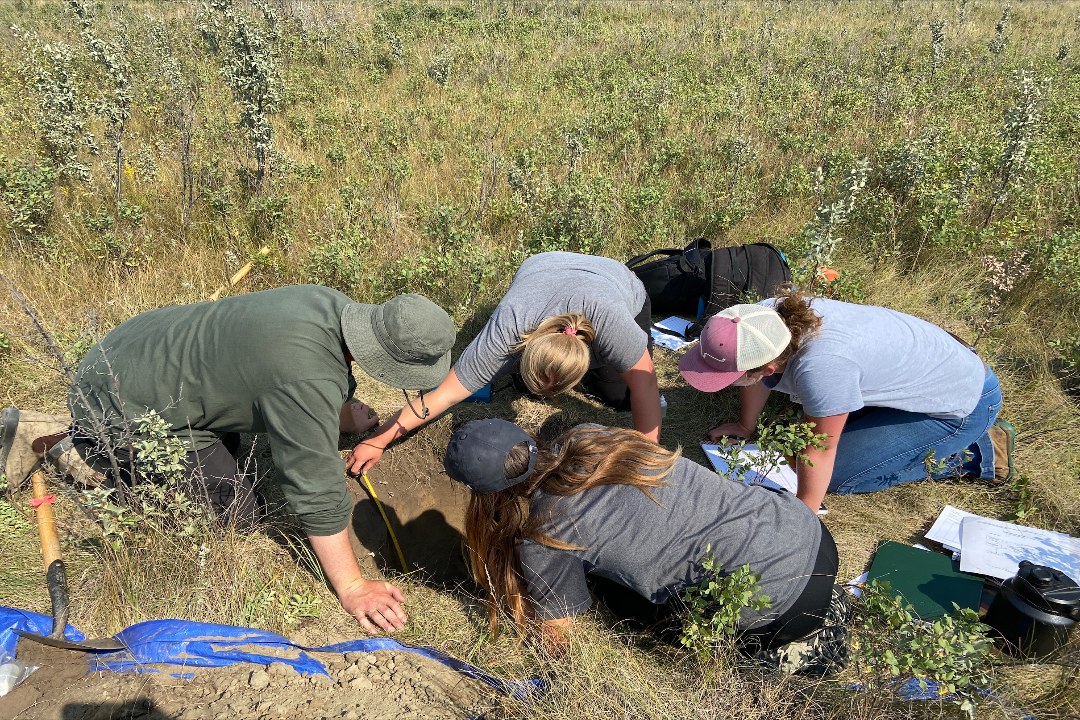
Soil health solutions: USask hosts Canadian Senate Agriculture and Forestry Standing Committee
On Monday, August 28, the University of Saskatchewan (USask) hosted delegates from Canada’s Senate Standing Committee on Agriculture and Forestry to inform the committee’s study on soil health in Canada.
By Kira GlasscockSoils provide many key ecosystem services, including food production, water filtration and carbon and nutrient cycling. Healthy soil is essential to the sustainability and growth of Canada’s agriculture sector, which is why the Senate standing committee is taking a close look at the status of soil health in Canada: to establish a baseline and to identify ways to maintain and improve soil health, ensuring Canadian agricultural producers are global sustainability leaders.
USask is an international leader in field-based, landscape-scale soil science research, with researchers actively involved in studies that focus on both terrestrial and aquatic ecosystem health, linking basic micro-scale science to real world issues.
“Soil health research is crucial for the global issues we are facing,” said Dr. Angela Bedard-Haughn (PhD), dean of the College of Agriculture and Bioresources. “USask researchers are conducting the soil health research needed to improve human health, food security, water quality, and mitigate climate change.”
“Closely examining the status of soil health allows us to identify best practices that are already being used by innovative farmers, and to increase adoption of those practices that mitigate future risk.”
During the visit, committee members participated in a roundtable discussion with USask researchers and graduate students in the College of Agriculture and Bioresources’ soil science and plant sciences departments.
Following the roundtable discussion, the delegation visited a soil science field course at Kernen Research Farm where they had the opportunity to interact with students and learn about practical aspects of soil formation, classification, landform recognition, and soil management.
For Bedard-Haughn, collaboration on these issues is key and being able to host the committee was an impactful way to spread the groundbreaking work being done at USask while deepening the delegation’s understanding of the innovation being made in the area.
“The committee’s study will provide a more accurate picture of how soil health varies across Canada and a baseline against which we can measure future efforts,” said Bedard-Haughn.
Together, we will undertake the research the world needs. We invite you to join by supporting critical research at USask.

